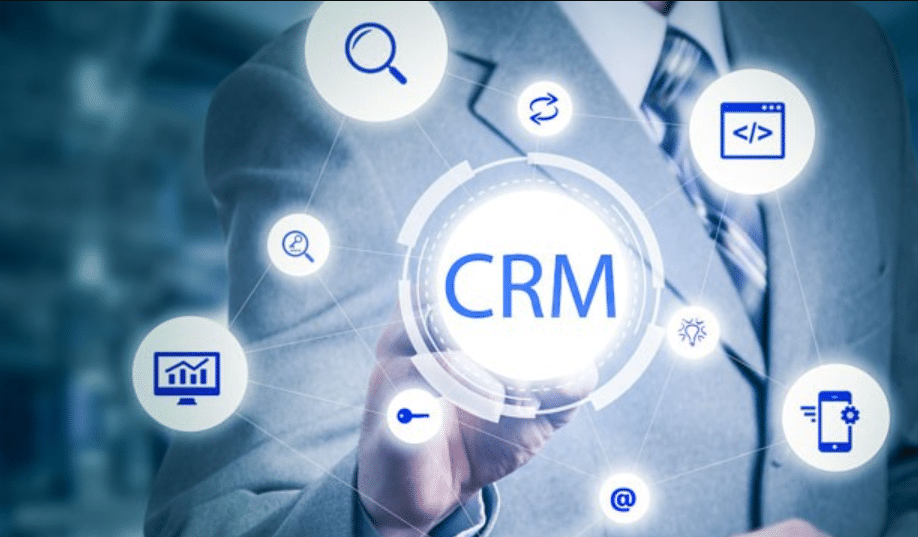In the ever-evolving landscape of business, Customer Relationship Management (CRM) has transcended the traditional notion of managing contacts. It has become an art, a strategic approach that goes beyond mere interactions to foster meaningful relationships. In this comprehensive guide, we’ll delve into the art of effective CRM, exploring key principles, actionable strategies, and how businesses can elevate their approach to build lasting connections.

Understanding the Essence of Effective CRM
At its core, effective CRM is more than just a database of contacts; it’s a philosophy that centers around understanding, engaging, and serving customers. It involves the meticulous management of customer data, seamless coordination between departments, and the artful use of technology to enhance every stage of the customer journey.
Key Principles of Effective CRM
1. Customer-Centric Approach
Effective CRM begins with a customer-centric mindset. Every interaction, from the first point of contact to post-purchase support, should be tailored to meet the individual needs and preferences of the customer. The art lies in anticipating what the customer wants before they express it.
2. Holistic Data Integration
The art of effective CRM involves integrating data seamlessly. It’s not just about collecting information but connecting the dots to create a holistic view of the customer. This integrated approach ensures that every team has access to the same, up-to-date information, fostering collaboration.
3. Tailored Communication Strategies
Crafting personalized and relevant communication is an art form in effective CRM. Businesses should use customer data to tailor their messages, ensuring that each communication resonates with the recipient. This artistry builds trust and strengthens the customer-business relationship.
4. Proactive Issue Resolution
An effective CRM strategy involves being proactive in addressing customer issues. The art lies in identifying potential problems before they escalate, demonstrating a commitment to customer satisfaction, and turning challenges into opportunities for positive engagement.
5. Continuous Improvement and Innovation
Effective CRM is a dynamic process that requires continuous improvement and innovation. The artistry lies in staying ahead of customer expectations, embracing new technologies, and evolving the CRM strategy to adapt to changing market dynamics.
Strategies for Mastering the Art of Effective CRM
1. Invest in Employee Training
The art of effective CRM starts with the people behind it. Invest in comprehensive training for employees across departments to ensure they understand the principles of customer-centricity and how to leverage CRM tools effectively.
2. Select a Scalable CRM Solution
Choosing the right CRM solution is critical. The art is in selecting a system that not only meets current needs but can also scale with the business. Consider factors such as flexibility, integration capabilities, and ease of use.
3. Create a Unified Customer Profile
The art of effective CRM involves creating a unified customer profile that captures all relevant information. This profile should be easily accessible to all teams, providing a complete view of customer interactions and history.
4. Segmentation for Personalization
Segmentation is an artful strategy in effective CRM. By categorizing customers based on their behaviors, preferences, and demographics, businesses can tailor their communications and marketing efforts, enhancing the overall customer experience.
5. Gather and Act on Customer Feedback
The art of effective CRM includes actively seeking and acting upon customer feedback. Use surveys, reviews, and other feedback mechanisms to understand customer sentiment and make necessary improvements to products, services, or processes.
Common Myths and Realities about Effective CRM
CRM is Only for Large Enterprises
The reality is that effective CRM is scalable and adaptable, suitable for businesses of all sizes. Modern CRM solutions offer features that cater to the specific needs of small and medium-sized enterprises.
Effective CRM is Expensive
Contrary to the myth, effective CRM doesn’t have to be prohibitively expensive. With the right strategy and the selection of cost-effective CRM solutions, businesses can implement effective CRM without breaking the bank.
CRM is Solely a Sales Tool
While CRM certainly enhances sales processes, its scope goes beyond sales. The reality is that effective CRM contributes to improved customer service, marketing efficiency, and overall business operations.
The Future Landscape of Effective CRM
Artificial Intelligence (AI) Integration
The future of effective CRM involves deeper integration with AI. Businesses will leverage AI for predictive analytics, personalized recommendations, and process automation, enhancing the efficiency and effectiveness of CRM strategies.
Emphasis on Ethical Data Use
As data privacy concerns grow, the future of effective CRM will involve a heightened emphasis on ethical data use. Businesses will prioritize transparency and responsible data management to build and maintain customer trust.
Augmented Reality (AR) in Customer Engagement
Effective CRM will explore the integration of augmented reality in customer engagement. From virtual product experiences to interactive support, AR will add a new dimension to the art of engaging with customers.
Conclusion: Elevating Customer Relationships Through Effective CRM
In conclusion, the art of effective CRM is about more than just managing contacts; it’s a strategic approach that elevates customer relationships to new heights. By embracing the principles, strategies, and technologies associated with effective CRM, businesses can not only meet customer expectations but exceed them, building enduring connections that drive success in the competitive business landscape.
FAQs
- Is effective CRM only suitable for large enterprises?
No, effective CRM is scalable and adaptable, suitable for businesses of all sizes.
- Is effective CRM expensive to implement?
Contrary to the myth, effective CRM doesn’t have to be prohibitively expensive. With the right strategy and selection of cost-effective solutions, businesses can implement effective CRM without breaking the bank.
- Is CRM solely a sales tool?
While CRM enhances sales processes, its scope goes beyond sales. Effective CRM contributes to improved customer service, marketing efficiency, and overall business operations.